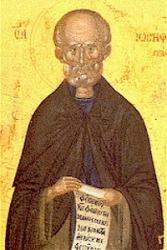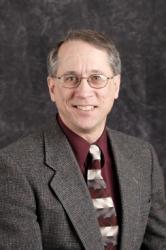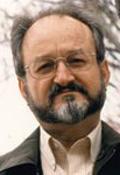Planning worship?
Check out our sister site, ZeteoSearch.org,
for 20+ additional resources related to your search.
- |
User Links
Person Results
Eric H. Thiman
1900 - 1975 Topics: All Saints Day Composer of "STOKESAY CASTLE" in Singing the New Testament b. 9-12-1900, Ashford, Kent, d. 2-13-75, London; music educator, organist, and composer
Eric H. Thiman
V. Earle Copes
1921 - 2014 Topics: Christian Year All Saints Day Composer of "FOR THE BREAD" in The United Methodist Hymnal
V. Earle Copes
David Maddux
b. 1954 Topics: Church Year All Saints' Day Arranger of "[I Love the Lord, He heard my cry]" in Psalms for All Seasons
David Maddux
St. Joseph the Hymnographer

810 - 886 Person Name: St. Joseph the Hymnographer, 9th cent Topics: Saints' Days and Holy Days St. Michael and All Angels Author of "Stars of the morning, so gloriously bright" in The Hymnal of the Protestant Episcopal Church in the United States of America 1940 Joseph, St., the Hymnographer. A native of Sicily, and of the Sicilian school of poets is called by Dr. Neale (in his Hymns of the Eastern Church), Joseph of the Studium, in error. He left Sicily in 830 for a monastic life at Thessalonica. Thence he went to Constantinople; but left it, during the Iconoclastic persecution, for Rome. He was for many years a slave in Crete, having been captured by pirates. After regaining his liberty, he returned to Constantinople. He established there a monastery, in connection with the Church of St. John Chrysostom, which was filled with inmates by his eloquence. He was banished to the Chersonese for defence of the Icons, but was recalled by the empress Theodora, and made Sceuophylax (keeper of the sacred vessels) in the Great Church of Constantinople, through the favour of the patriarch Ignatius. He stood high also in the favour of Photius, the rival and successor of Ignatius, and accompanied him into banishment. He died at an advanced age in 883. He is commemorated in the Calendars of the Greek Church on April 3rd. He is the most voluminous of the Greek hymnwriters. There are more than two hundred Canons under the acrostic of his name, in the Menaea. Cardinal Pitra says he is reported to have composed a thousand. There is some difficulty in distinguishing his works from those of the brother of Theodore of the Studium, Joseph of Thessalonica. This latter poet, and not the more celebrated Joseph the Hymnographer, was named Joseph of the Studium. [Rev. H. Leigh Bennett, M.A.]
-- John Julian, Dictionary of Hymnology (1907)
See also in:
Wikipedia
St. Joseph the Hymnographer
George Hugh Bourne
1840 - 1925 Topics: liturgical Communion Songs Author of "Lord, Enthroned in Heavenly Splendor" Bourne, George Hugh, D.C.L., son of Rev. R. B. Bourne, born at St. Paul's Cray, Kent, 8th Nov. 1840, and educated at Eton, and O. C. C, Oxford, graduating B.A., 1863; B.C.L., 1866; and D.C.L. 1871. Taking Holy Orders in 1863, he became Curate of Sandford-on-Thames, 1863. He was afterwards Head Master of Chardstock College, and is now (1886) Warden of the same school, which has been transferred to St. Edmund's, Salisbury. Dr. Bourne has written the following hymns:—
1. Scarce discerning aught before us. General, Written in Switzerland in 1861, and published in Lyra Messianica, 1864, p. 17, in 10 stanzas of 4 lines, and repeated in the Appendix to the Society for Promoting Christian Knowledge Psalms & Hymns, 1869, in an abbreviated form.
2. 0 Christ, the king of human life. Holy Matrimony. A hymn on Holy Matrimony, written in 1867 for the marriage of Dr. A. B. Webb, Bishop of Bloemfontein, and included in the Society for Promoting Christian Knowledge Appendix to the Psalms & Hymns, 1869, and thence into Church Hymns, 1871.
3. Of the wondrous Body, 0 my tongue be telling. A translation of "Pange lingua gloriosi corporis," q.v., contributed to Lyra Eucharistica, 2nd edition, 1864. Dr. Bourne has also written seven Post-Communion hymns for use in the Chapel of St. Edmund's College, Salisbury. These hymns have not been published.
-- John Julian, Dictionary of Hymnology (1907)
===================
Bourne, George H, p. 164, ii. From his Post Communion Hymns, privately printed in 1874 (see p. 165, i., 3), the hymns "O Christ, our God, 'Who with Thine own hast been" (Holy Communion), and "Lord, enthroned in heavenly splendour" (Holy Communion), are taken.
--John Julian, Dictionary of Hymnology, Appendix, Part II (1907)
George Hugh Bourne
Roy Hopp

Topics: All Saints Day Composer (descant) of "O QUANTA QUANTA" in Singing the New Testament Roy Hopp (b. 1951) is the Director of Music at Woodlawn Christian Reformed Church in Grand Rapids, MI and Adjunct Professor of Choral Music at Calvin Theological Seminary, where he directs the Calvin Theological Seminary Choir.
Hopp graduated from Calvin College with a Bachelor’s Degree in Music Education and from Michigan State University with a Master’s Degree in Choral Conducting. He did further studies in church music and composition with Richard Hillert at Concordia University in River Forest, IL. He has served as a Director of Music in churches in West Michigan and Colorado for the past twenty years.
His choral compositions have appeared in the catalogues of AugsburgFortress, earthsongs, GIA Publications, Inc., Kjos, MorningStar, and Selah and his hymn tunes have been published in hymnals and collections in the United States, Canada, England, Wales and Scotland.
Emily Brink
Roy Hopp
Juan A. Espinosa

b. 1940 Topics: Church Year All Saints' Day Author of "Feliz la gente (How Blest the People)" in Psalms for All Seasons Born: 1940, Badajoz, Spain.
Internationally recognized as one of the leading composers of Spanish liturgical music, Juan Antonio Espinosa composes songs that emphasize hope for the oppressed, social justice, and the power of faith. Currently, he directs the Association for the Promotion of Religious Music (APROMUR) in Spain and serves as a liturgical musician at San Estanislao Parish in Madrid.
After living for a time in Peru, Juan published music reflecting the Andes style and Latin American social realities. Hispanic assemblies in the U.S. are familiar with Juan's uplifting music through his songs in the OCP collections Pescador de Hombres and Resucitó, and in Cánticos, Segunda Edición, Misal Del Día, Unidos En Cristo Música and Flor y Canto, Segunda Edición.
His first collection for OCP was Al Señor del Nuevo Siglo.
--www.ocp.org/artists/358
Juan A. Espinosa
Manuel José Alonso
b. 1939 Person Name: Manual José Alonso Topics: All Saints Day Author (Spanish) of "Alabaré (Alleluia)" in Singing the New Testament
Manuel José Alonso
Alan Gray
1855 - 1935 Person Name: Alan Gray (1855-1935) Topics: All Saints' (Sun)day Year A Composer (descant) of "HANNOVER" in Ancient and Modern Born: December 23, 1855, York, England.
Died: September 27, 1935, Cambridge, England.
Buried: Trinity College, Cambridge, England.
Alan Gray (23 December 1855, York – 27 September 1935, Cambridge) was a British organist and composer.
Born in York, he attended St Peter's School in York and Trinity College, Cambridge. From 1883 until 1893 he was Director of Music at Wellington College. In 1893 he returned to Cambridge to be organist at Trinity College, and remained organist there until 1930.
Among his compositions are liturgical music for Morning and Evening Prayer and the Office of Holy Communion for use in the Church of England according to the Book of Common Prayer, including an Evening Service in f minor, a setting of Holy Communion in G, several anthems, including 'What are these that glow from afar?', and a collection of descants to various hymn tunes, several of which are still in use today (Common Praise (2000) includes four). He also composed a number of items for organ, for violin solo, and for voice and orchestra to religious and secular texts.
--en.wikipedia.org/wiki/
Alan Gray


 My Starred Hymns
My Starred Hymns


